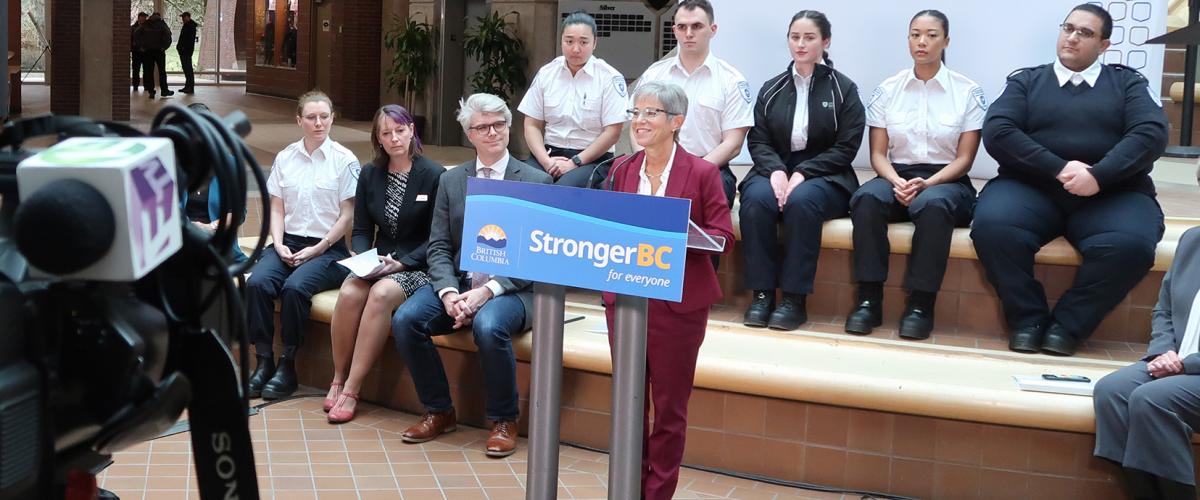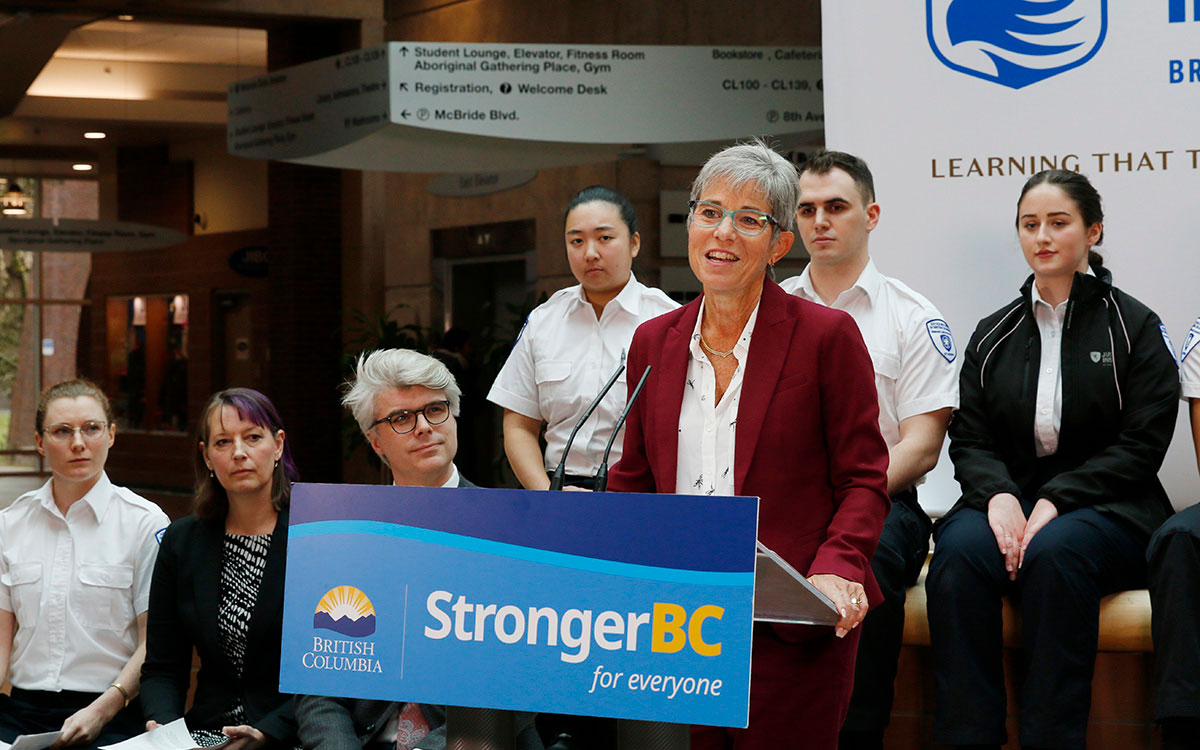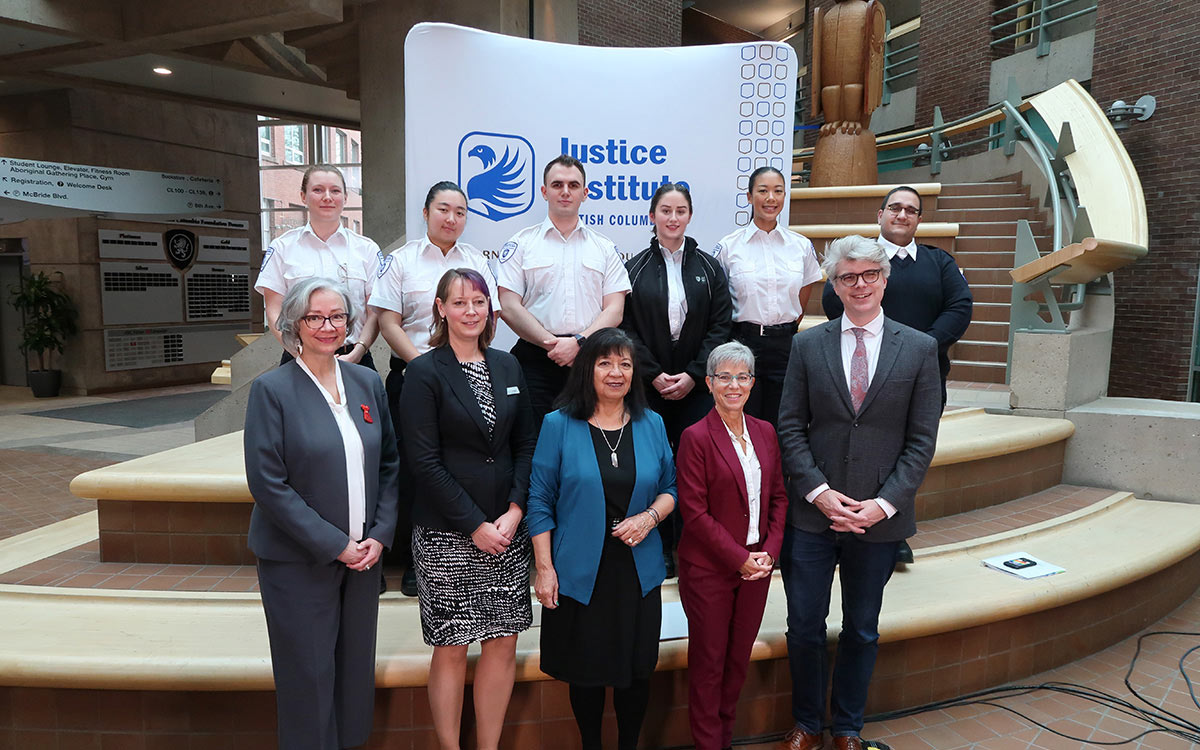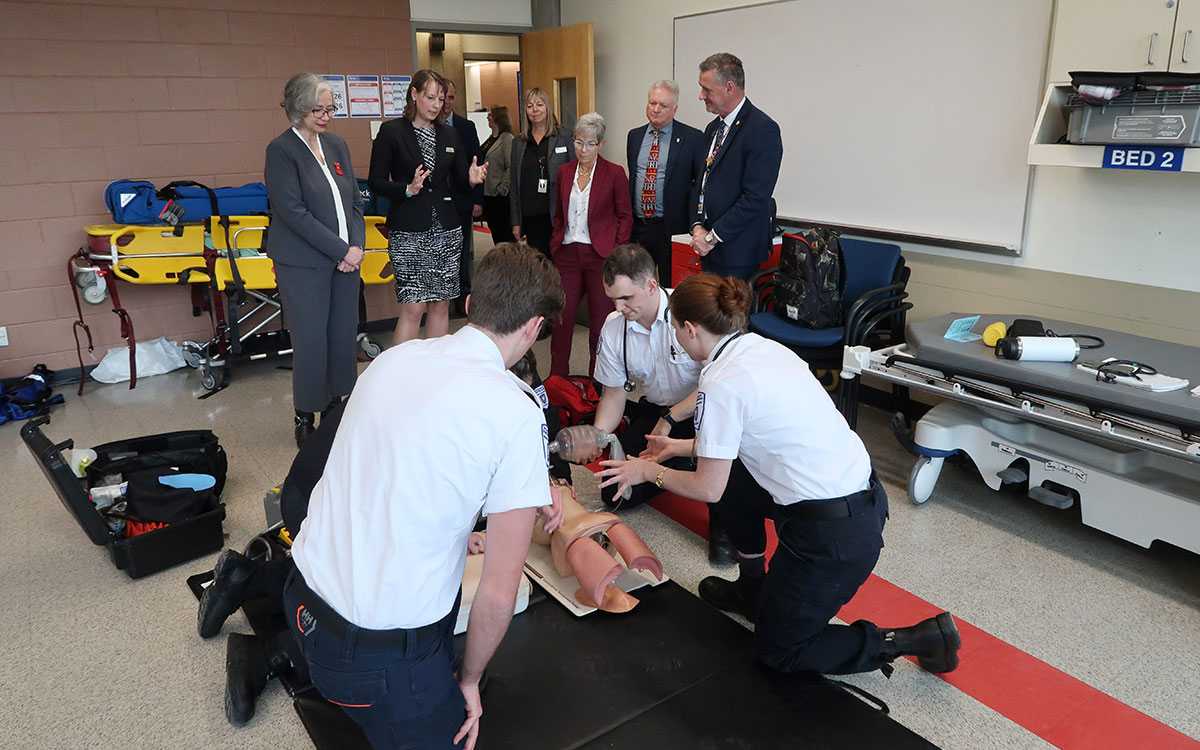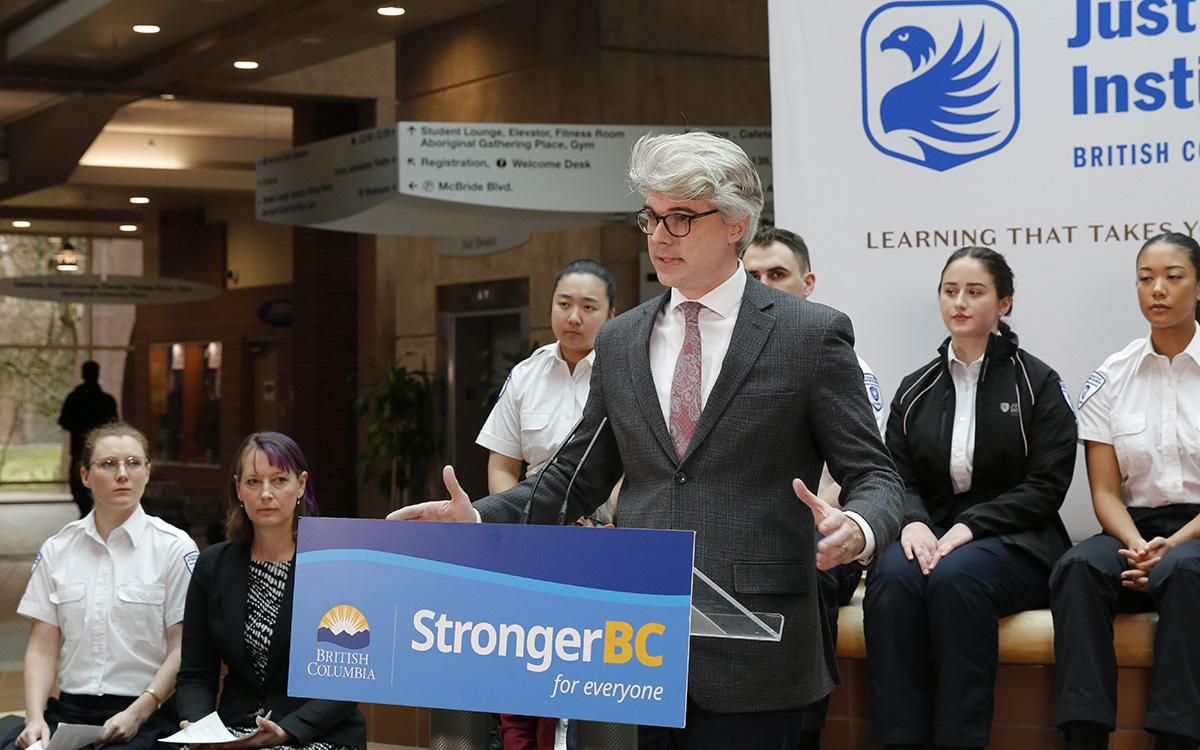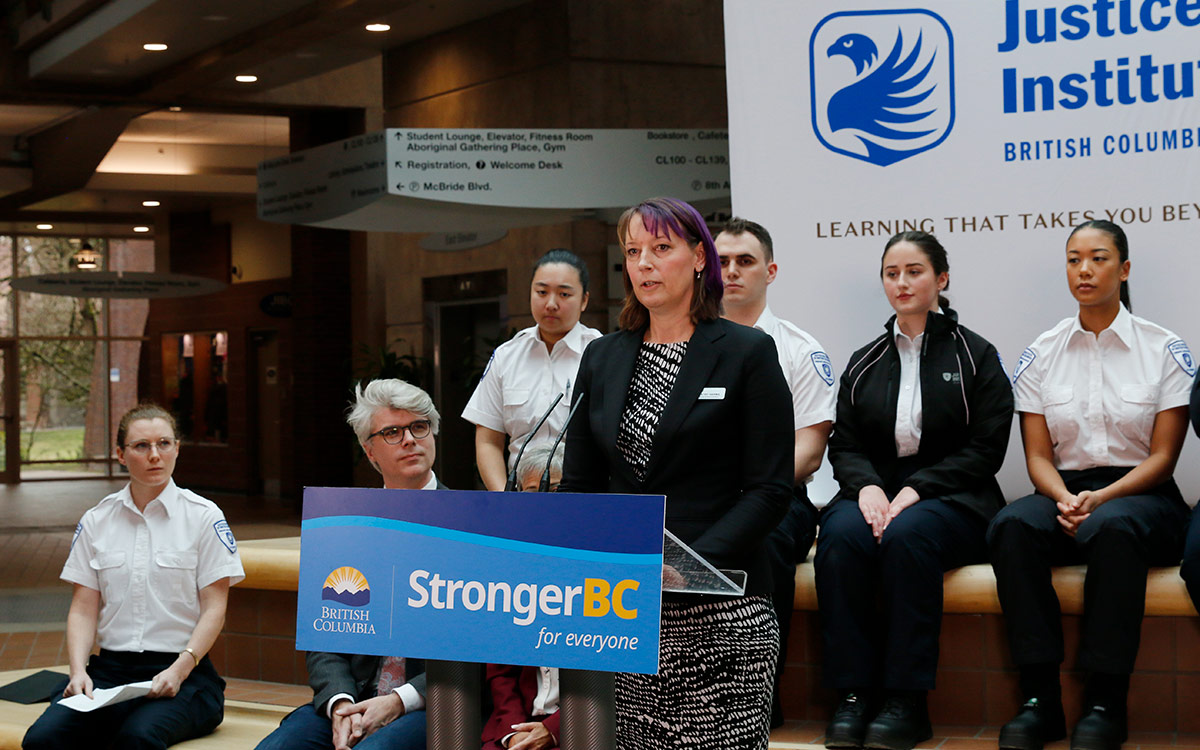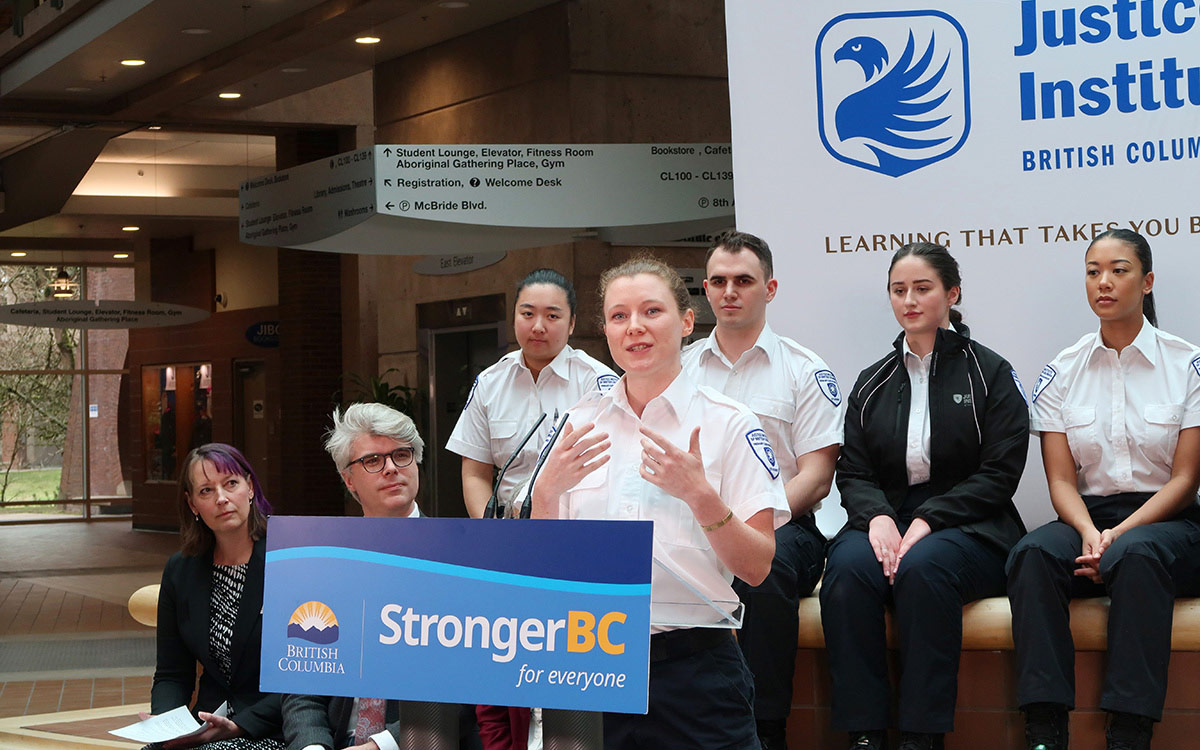Government is providing approximately $2 million in funding to JIBC to expand its paramedic programming.
See https://news.gov.bc.ca/releases/2023PSFS0005-000133
VICTORIA - British Columbians will have improved access to emergency health services as the Province invests approximately $2 million into expanding paramedic training programs in communities around the province.
"Paramedics are the backbone of our emergency health services and our government is acting to strengthen our health system," said Selina Robinson, Minister of Post-Secondary Education and Future Skills. "Our government's investment will create opportunities for people to begin careers in emergency health care, leading to faster response times for British Columbians when they need it."
Government is providing approximately $2 million in funding to the Justice Institute of B.C. (JIBC) to expand its paramedic programming. The funding will help the primary care paramedic certificate program to be delivered to more than 100 students in Chilliwack, Kelowna, New Westminster, Trail and Victoria; and emergency medical responder training to approximately 30 participants in Cranbrook, Port Alberni and Prince George. The emergency medical responder training is a prerequisite for the primary care paramedic certificate program.
"When people need emergency care, paramedics are often the first on scene, providing quality care and support for people and their families," said Adrian Dix, Minister of Health. "That's why our government is continuing to invest in training opportunities for paramedics, alongside other in-demand careers in health care, so that people have timely access to the care they need, when they need it. This is another action we are taking as part of B.C.'s Health Human Resources Strategy to build a better health-care system for B.C. for generations to come."
The funding comes from the Community Workforce Response Grant, which provides funding for communities and sectors to support in-demand skills training leading to secure and sustainable employment for British Columbians.
The expanded paramedic training locations are where JIBC offers training. The funding may be used to pay for transportation and housing for participants travelling from outside of those communities.
Since April 2021, the Community Workforce Response Grant has provided more than $20 million in funding to communities and service providers to train more than 1,665 people in health care-related positions. Examples include training to become primary-care paramedics, medical-laboratory assistants, health-care assistants, personal-support workers, medical-unit clerks and mental-health workers.
Creating opportunities for people to join the health-care workforce in B.C. is part of government's Health Human Resources Strategy, which was announced on Sept. 29, 2022. The strategy supports patients by ensuring they get the health services they need and are cared for by a healthy workforce. It focuses on 70 key actions to recruit, train and retain health-care workers, while redesigning the health-care system to foster workplace satisfaction and innovation.
Investing in training for emergency health-care workers is part of StrongerBC's Future Ready plan to make education and training more accessible, affordable and relevant to help businesses grow and prepare British Columbians for the jobs of tomorrow.
Quick Facts
The Community Workforce Response Grant provides funding for communities and sectors to support in-demand skills training leading to secure and sustainable employment.
Community Workforce Response Grant funding can be used to pay for:
- skills training, including apprenticeship foundations, short-term, occupational and essential skills training;
- employment-assistance services, such as resume writing, interview skills, pre- employment counselling and/or coaching, and Indigenous cultural components;
- participant financial supports, such as child care, transportation, disability supports and personal protective equipment.
Funding amounts fluctuate based on student enrolment.
Learn More
To learn more about the Province's Health Human Resource Strategy, visit: https://news.gov.bc.ca/releases/2022HLTH0059-001464
To learn more about StrongerBC, visit: https://strongerbc.gov.bc.ca/
To learn more about programs at JIBC, visit: https://www.jibc.ca/areas-of-study
A backgrounder follows.

BACKGROUNDER
Ministry of Post-Secondary Education and Future Skills
Ministry of Health
What people are saying about the paramedic programs at JIBC
Andrew Mercier, Minister of State for Workforce Development -
"These training programs will give participants the skills and experience they need to join the health-care system. By providing funding for paramedic and emergency health training programs, we're supporting a skilled workforce that benefits all British Columbians."
Kathy Harms, director of Health Sciences Division, JIBC -
"This funding has created a significant opportunity for students to answer the call to pursue a career in paramedicine at a critical time for the profession here in B.C. Paramedic students often indicate a high degree of financial need, and the program itself is very intense, making the balance of work and school difficult to manage. This funding, which will cover all the students' education expenses, will help alleviate the financial need, and allow students to focus more completely on their studies and success in the program."
Leanne Heppell, executive vice president & chief ambulance officer, BC Emergency Health Services -
"As BC Emergency Health Services continues to seek innovative ways to recruit staff throughout British Columbia, this funding will help increase access to paramedic training to help ensure we have a foundation of trained paramedics to serve communities in our province. With $2 million in funding at JIBC in both urban and rural communities, we can continue to fill existing vacancies, bolstering the pre-hospital emergency service delivery we provide to British Columbians."
Kate Peer, a harm-reduction volunteer and primary-care paramedic student -
"If we have this much of an impact as first-aid medics, how much could a paramedic team do? Thanks to the funding, I don't have to work a second job. You're investing in us, you believe in us. It's huge."
Contacts
Ministry of Health Media Relations
250 952-1887 (media line)
Ministry of Post-Secondary Education and Future Skills
Media Relations
250 508-5030 (media line)
